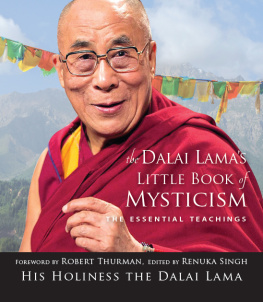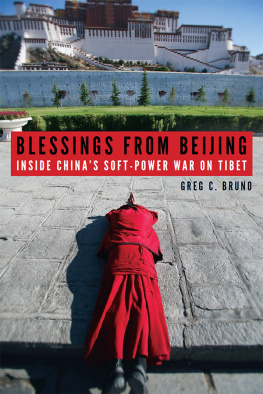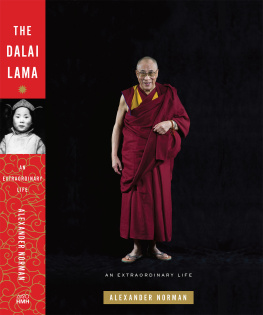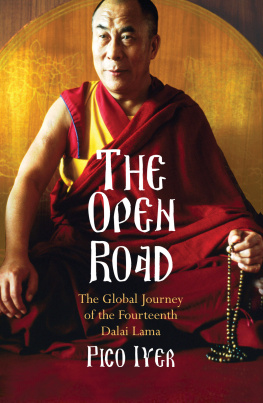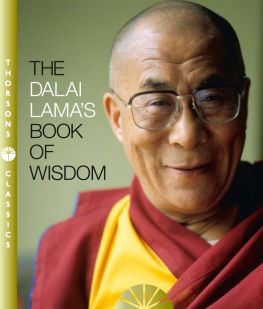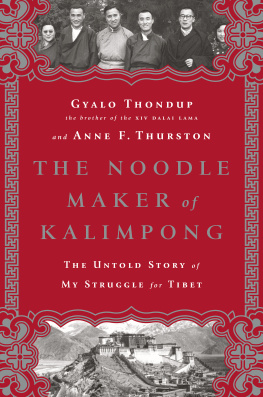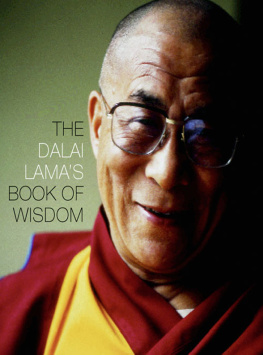The Dalai Lamas Secret
and Other Reporting Adventures
THE
DALAI LAMAS
SECRET
AND OTHER REPORTING ADVENTURES
Stories from a Cold War Correspondent
----------------------------
HENRY S. BRADSHER
Published by Louisiana State University Press
Copyright 2013 by Louisiana State University Press
All rights reserved
Manufactured in the United States of America
First printing
DESIGNER: Michelle A. Neustrom
TYPEFACE: Chaparral Pro
PRINTER: McNaughton & Gunn, Inc.
BINDER: Dekker Bookbinding
CARTOGRAPHER: Monica Bradsher
LIBRARY OF CONGRESS CATALOGING-IN-PUBLICATION DATA
Bradsher, Henry S. (Henry St. Amant), 1931
The Dalai Lamas Secret and Other Reporting Adventures : Stories from a Cold War Correspondent / Henry S. Bradsher.
pages cm
Includes bibliographical references and index.
ISBN 978-0-8071-5050-4 (cloth : alk. paper)ISBN 978-0-8071-5051-1 (pdf)
ISBN 978-0-8071-5052-8 (epub)ISBN 978-0-8071-5053-5 (mobi) 1. Bradsher, Henry S. (Henry St. Amant), 1931 2. Foreign correspondentsUnited StatesBiography. I. Title.
PN4874.B6618A3 2013
070.4'332092dc23
[B]
2012039371
The paper in this book meets the guidelines for permanence and durability of the Committee on Production Guidelines for Book Longevity of the Council on Library Resources.

With respect, for journalistsforeign correspondents and also local reporters worldwidewho accept the difficulties and often dangers of providing the information vital for good and honest government.
PREFACE
ANYONE WHO HAS WANDERED AROUND THE WORLD WATCHING INTEResting events as a journalist accumulates lots of stories to tell. Here are some stories from twenty-seven years in journalism.
Most of them focus on specific events that I reportedor was otherwise involved in, such as thwarting a Soviet blackmail scheme. A few are more sweeping accounts of times and places, such as reporting parts of several wars with only a few forays into being a jungle-slogging war correspondent. These pieces were written over many years as stand-alone anecdotes, so there is a little overlap.
However, this is not intended to be a comprehensive diary of my career as a reporter. Lots of things that engaged me are left out, such as being shot at by Communists trying to take control of Portugal, hoping an aging Lao helicopter was not really as hazardous as it sounded, interviewing President Gerald R. Ford on Air Force One while Henry A. Kissinger dozed off, witnessing the hardships of Vietnamese boat people, talking with African guerrillas, and examining some South American politics. The collection includes almost nothing on reporting from Afghanistan, about which I wrote two books.
Most of the anecdotes here are from the longer periods of my career spent in South Asia, the Soviet Union, and East Asia. Without having a Soviet-style five-year plan, I ended up spending approximately five years in each of these areaslong enough to develop some background understanding of factors behind the news. Times have changed since then. Fewer American news organizations maintain correspondents abroad. Unfortunately, many organizations now depend on parachute journalismdropping their stars briefly into hot spots about which they know little.
Improved communications have contributed to this change. From remote areas, I had to get to the nearest telegraph office to slap a typewritten report on the counter and hope it would soon be transmitted, or later, as communications improved, punch my story into Telex tape and try to get a connection to my newspaper. By the early twenty-first century my elder son, a New York Times correspondent, could get breaking stories from remote parts of Asia into his papers late editions by cell phone dictation to a editor in Manhattan or typing into a smart phone.
Times have changed. My times were good.
--------
Most spellings and names in use at the time of events described here have been changed to twenty-first-century usage. For example, Peking has become Beijing, Dacca is now Dhaka, and Chou En-lai is Zhou Enlai. A few unfamiliar changes, such as Calcutta to Kolkata, have been ignored, however.
The Dalai Lamas Secret
and Other Reporting Adventures
1
-------
A GUBERNATORIAL PUSH
A BOYHOOD FASCINATION WITH WORLD WAR II STARTED MY INTEREST in world affairs that turned into a desire to become a foreign correspondent. It seemed to be an exciting world out there. So it proved to be. Before I became a foreign correspondent, however, my journalism got a push from a governor of Louisianaan angry, not a friendly, push.
In third grade in the Louisiana State University lab school, those youngsters who were doing well in various subjects were sometimes allowed to read quietly in a corner by open windowsthis was before air conditioning. I was reading one morning when newsboys came by outside shouting, Extra! It was May 10, 1940, and Nazi Germany had invaded the Low Countries. That is my first recollection of the war, one day before my ninth birthday.
By the time the United States entered the war following the Pearl Harbor attack a year and a half later, I was working after school four times a week down the street at my grandfathers plant nursery. I was supposed to learn something about horticulture from the elderly German migr who ran the nursery. With money thus earned, I subscribed to Life magazine for its graphic war coverage.
In the sixth grade at Highland School, Miss Lillian Kennedy used the war as part of her social studies and geography material. Students were asked to report every morning on the latest news. I gradually became the main reporter, recounting to the class the American troop landings in North Africa in November 1942 and other developments. I was hooked on reporting the news.
In a junior high school class that tried to focus students on what careers they might want to follow and how to prepare for them, I did my report on reporting. Work on my high school newspaper and yearbook seemed a logical part of becoming a journalist, although hardly useful preparation. The question was where to go to college. LSU had a good journalism school. Attending it would be the cheapest possibility, but the father of a friend urged me to go to his alma mater, the University of Missouris School of Journalism, founded in 1908 as the worlds first journalism school and still one of the most respected in the United States. He was C. P. Liter, the top editor for both of the locally owned morning and evening newspapers. This was endorsed by a close friend of my mother since childhood, Margaret Dixon, although she was an LSU graduate. She had become the top reporter for one of these papers, the Morning Advocate.
So, after a freshman year at LSU and spending the summer of 1949 bicycling and hitchhiking around Western Europe, I went in September to the University of Missouri, where my father had graduated. One of the courses that I took that sophomore year was Recent U.S. History, taught by Dr. Irvin G. Wyllie. Covering the half-century from the Spanish-American War through World War II, it was a requirement for all journalism students and widely popular with other students. After I had earned an E in the course, Missouris equivalent of an A, and let it be known that I was looking for student employment, Wyllie asked me to grade the class papers. Throughout my junior and senior years, I spent most Friday and Saturday evenings reading the longhand answers to tests that Wyllie gave every Friday to the 150 or so students who took his course each semester. Grading the papers made me well-known to my fellow journalism students, many of whom did not seem to appreciate that I was just doing a job to help pay for my education.


